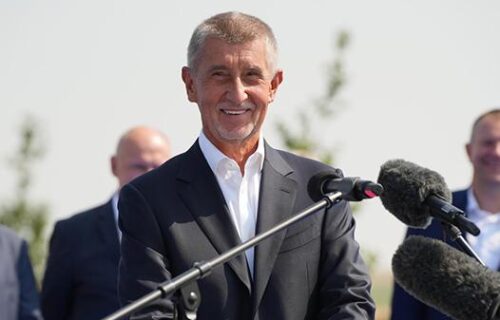Czech voters have handed a fresh mandate to former prime minister Andrej Babiš, whose centrist-populist ANO movement emerged as the clear winner in this weekend’s parliamentary election. The result marks a shift in the country’s political mood after years of centre-right rule and could reshape Prague’s approach to both domestic and European affairs.
According to early results, ANO won roughly a third of the national vote, well ahead of the parties in the outgoing government led by Prime Minister Petr Fiala. While Babiš’s victory was decisive, it fell short of an outright majority, leaving him dependent on smaller right-wing or nationalist parties to assemble a workable coalition. That task may prove complicated, as some potential partners are demanding high-profile positions or policy concessions.
The election was widely seen as a referendum on the direction of the country after a turbulent period of inflation, rising living costs, and social division. Babiš capitalized on voter fatigue with the austerity-minded Fiala government, promising to boost wages, cut taxes, and reduce household expenses. His campaign focused on restoring economic stability and protecting “national interests,” a message that resonated strongly with voters outside major cities.
For Fiala’s coalition, which had presented itself as a pro-European, reform-driven administration, the result is a major setback. The outgoing government had invested heavily in foreign policy—supporting Ukraine, strengthening cooperation within the EU and NATO, and backing ambitious climate initiatives—but critics argued it failed to address domestic pressures at home. Many voters expressed frustration that while the Czech Republic had taken on a prominent role in Europe, ordinary families were struggling to cope with energy costs and stagnant wages.
Babiš’s return to power raises questions about the Czech Republic’s future course in Europe. He has long been critical of Brussels on issues such as migration quotas, climate targets, and the distribution of EU funds, yet he has stopped short of calling for any withdrawal from the bloc. His likely coalition partners, however, may push for a more confrontational stance toward EU institutions, potentially aligning Prague more closely with the governments of Budapest and Bratislava.
Foreign policy observers are also watching closely to see whether the Czech Republic will maintain its strong backing for Ukraine. While President Petr Pavel has urged continuity in military and humanitarian support, Babiš has signaled a desire to prioritize domestic spending and has questioned the scale of Prague’s aid commitments. How these differences play out could determine whether the country remains one of Kyiv’s most outspoken allies.
At home, the new government faces a delicate balancing act. Babiš, a billionaire businessman and one of the country’s most polarizing figures, will have to reassure investors and allies that he intends to govern pragmatically, not ideologically. His critics worry that a coalition dependent on fringe movements could erode institutional checks or deepen divisions in Czech politics. Supporters, however, say his victory represents a needed correction—an end to technocratic politics and a return to leadership focused on household prosperity.
The weeks ahead will test Babiš’s ability to turn his electoral win into a functioning government. Coalition talks are expected to be protracted, and the president retains the power to veto ministerial appointments. Whether this new chapter leads to greater stability or renewed confrontation will depend on how far Babiš is willing to compromise—and how united his potential allies prove to be once the governing begins.
